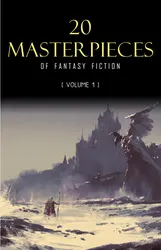The Everlasting Man by G.K. Chesterton, first published in 1925, is a classic work of Christian apologetics that examines the history of human civilization in a unique light. Chesterton's argument is that Christianity is the only religion that can explain the evolution of human thought and culture, from primitive times to the present day. He argues that Christianity is the only religion that can satisfactorily explain human nature, and that its teachings have been influential in shaping the world we live in today.
The book begins with an account of human history, beginning with primitive man and exploring the various forms of religion and philosophy that have come and gone. Chesterton argues that these religions and philosophies have all contributed in some way to the evolution of human thought and culture, but that none have been able to explain the full range of human experience. He then turns his attention to Christianity, arguing that it is the only religion that can explain the full range of human experience, from the dawn of time to the present day.
The Everlasting Man is also notable for its examination of the history of science and its influence on human thought. Chesterton argues that science can only go so far in explaining the nature of the universe, and that Christianity is the only religion that can provide a complete explanation. He also argues that science is not the only way to understand the world, and that Christianity provides a more comprehensive understanding of the nature of the universe. The Everlasting Man also provides a detailed analysis of the life of Jesus and the significance of his teachings. Chesterton argues that Jesus was the only man who could have had the impact he did, and that his teachings remain relevant and applicable to the modern world. The book is considered one of the most important works of Christian apologetics, and its insights into the history of human thought and culture remain relevant today.












